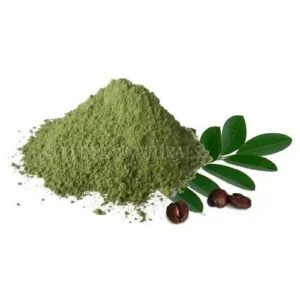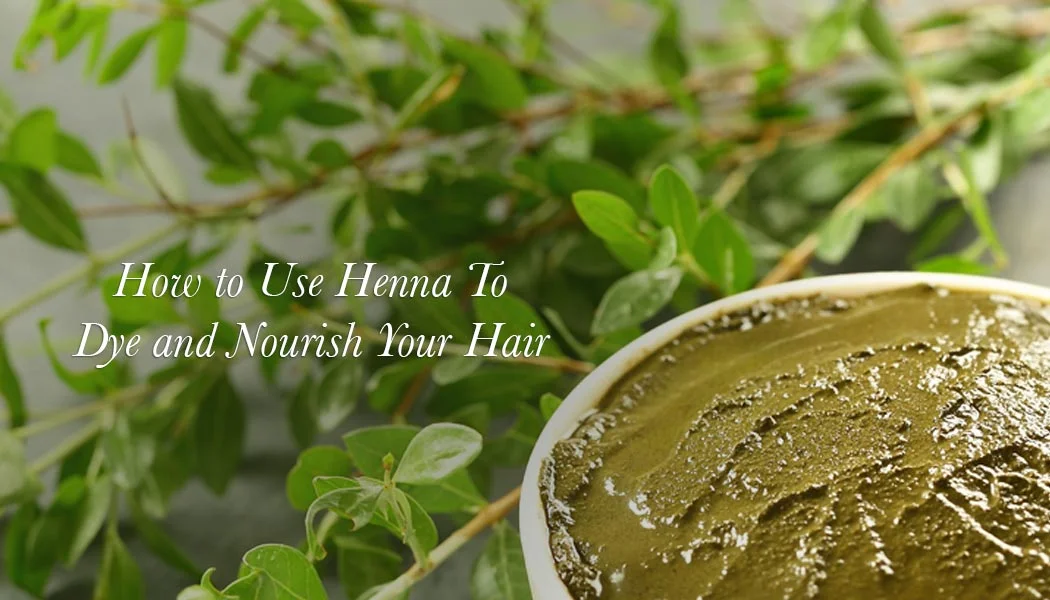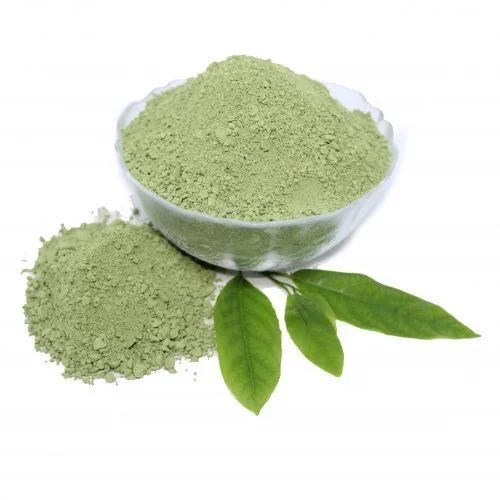Contents
- 1 What Is Indigo Powder?
- 1.1 Benefits of Indigo Powder For Hair
- 1.2 How To Use Indigo Powder As A Hair Color?
- 1.3 How To Use Henna And Indigo Powder To Color Your Hair Black?
- 1.4 How To Use Henna To Color Your Hair Brown?
- 1.5 How To Apply Henna Powder And Indigo Powder On Hair?
- 1.6 Is it safe to use Henna and Indigo powder on your hair?
- 1.7 Side Effects of Indigo Powder For Hair
- 2 Conclusion
What Is Indigo Powder?

Indigo powder is a natural indigo pigment that comes from the indigo plant. It’s long been used in many cultures for dyeing fabrics and other materials. But it has recently gained popularity as an alternative health product because of its purported benefits. We’re going to cover some of these hidden benefits in this blog post!
Indigo is most commonly used as body paint for temporary tattoos. However, indigo powder has more benefits than just being used to make cool-looking patterns on people’s skin!
For example, indigo can be mixed with coconut oil and applied to the scalp in order to combat hair loss.
Benefits of Indigo Powder For Hair
Isn’t it amazing how naturally dyeing your hair can improve the health of your hair? Natural hair colors give your locks the hue you choose without causing damage.
But, before we get into the procedures for dying your hair, let’s go over some of the well-known advantages of putting Indigo Powder on your hair:
- prevents premature greying: indigo powder contains indanthrone that can help delay the progression of grey hairs.
- prevents hair loss: indigo powder is an amazing remedy to treat your hair since it treats common problems like premature greying and even baldness! It’s also known for strengthening weak strands, thus preventing breakage while you style your hair.
- the appearance of fuller, thicker hair: indigo powder has been known to have the best results when used on people with naturally thin and fine strands. So if your locks are lacking in volume, you might want to add indigo root powder into your beauty routine!
- treatment of dandruff: indigo powder is a natural antiseptic that kills bacteria and fungi that cause dandruff.
- improves scalp health: indigo powder contains a chemical called indanthrone that cleanses your hair and scalp by removing dead skin cells on the surface of your skin, thus improving its overall appearance.
- removes head lice: indigo powder is an amazing remedy for those who suffer from nits and lice. It has amazing flea-killing powers that will remove the entire infestation within just a few treatments!
- increases hair growth: indigo powder contains vitamin C, which is known for its ability to increase collagen synthesis in human skin when applied topically. Collagen production leads to healthier and faster-growing locks!
How To Use Indigo Powder As A Hair Color?

Indigo powder is a natural dye from Indigo fera plants. indigo has been used as hair color for centuries in many parts of the world including India, Southeast Asia, Central America, and Africa. indigo provides bright grey coverage with blue undertones that blend well on darker shades to give you a permanent gray look or can be mixed with henna to create a deeper indigo color. indigo also gives hair an ultraviolet sheen like no other natural plant dye can do!
Indigo is easy to use and provides long-lasting results, especially on darker shades of hair. the indigo powder will give you any shade of blue from bright “electric” blue all the way to indigo black.
How To Use Henna And Indigo Powder To Color Your Hair Black?
This hair color is attractive. And one can integrate indigo powder into his/her regular routine. Indigo has been used for centuries to naturally darken the pigment of gray, blonde, or light brown strands without artificial chemicals! Henna contains a red dye that also helps cover up grays while nourishing the locks. Use indigo powder in conjunction with indigo powder to dye your hair black.
To dye your hair black, you must divide the procedure into two parts. Applying a mixture of henna powder and indigo powder to your hair will not provide the intended effects. So, if you’re seeking those stunning black locks, here’s what you should do:
Step 1: Apply Henna To Your Hair

- Soak the Henna Powder (100 gms for short hair, 200 gms for shoulder-length hair, 300 gms for long hair) overnight in a mixing basin with Tea Water or Coffee Water. (Adding coffee enhances the red color of the henna.) If desired, add a splash of lemon juice.
- For extra conditioning, add yogurt or an egg.
- Apply the paste to clean, product-free hair the next day for 45-60 minutes, depending on desired severity.
- Rinse completely with water alone, as many times as you feel necessary. You should not use shampoo.
Step 2: Apply Indigo To Your Hair
- Allow your hair to dry after washing it.
- To make a paste, combine the Indigo Powder (100 gms for short hair, 200 gms for shoulder-length hair, 300 gms for long hair) with warm water.
- Apply to your hair with a spatula or gloves if applying with your hands.
- Leave on for 45 minutes or longer, depending on how intense you want it. To obtain a rich black color, leave it on your hair for up to 2 hours.
- Thoroughly rinse with water.
- The next day, wash your hair with a cleansing shampoo.
These two methods will give you the natural black hair color you want. You may use this procedure to color your hair twice or three times a month.
How To Use Henna To Color Your Hair Brown?
To obtain dark hair, several companies advocate mixing Henna Powder and Indigo Powder together. When using Kama’s Natural Hair Colour, however, you just need to apply Henna to naturally color your hair brown.
To develop brown to reddish-brown hair, follow these simple procedures.
- In an iron skillet, soak the Henna Powder (100 gms for short hair, 200 gms for shoulder-length hair, 300 gms for long hair) overnight in Tea or Coffee Water. (You can enhance the red hue of henna by adding of.)
- If desired, you can add a splash of lemon juice. For extra conditioning, add yogurt or an egg.
- Apply the paste to clean, product-free hair the next day for 2 hours, depending on desired severity.
- Rinse well with water and repeat as often as you feel necessary. You should not use shampoo.
- The next day, wash your hair with a cleansing shampoo. Shampoos containing Ayurvedic components such as Hibiscus for hair are available. Natural shampoos produced from Hibiscus clean the hair without depleting the scalp of its natural oils, unlike conventional shampoos.
How To Apply Henna Powder And Indigo Powder On Hair?
An organic compound, indigotin makes indigo powder. This chemical comes from indigo plant leaves and this class contains tannins, pigments. Ancient writers reported the use of indigo as a coloring agent on dyeing with wood-wool and indigo and it was melded by the Egyptians. Indigo is a good dye for protein fibers such as silk, wool, and leather but not for cotton or other vegetable fibers like linen or hemp because they are soluble only in alkaline solutions.
The procedures for dying your hair are simple and uncomplicated. However, if you’re dying your hair on your own, you could find it difficult at first. Here are a few measures you can do to make the procedure more pleasant and hassle-free.
- Make sure the paste is the appropriate consistency before you start applying it. It should have the consistency of pudding, neither too dry nor too moist and runny.
- Put on your rubber gloves and wrap an old towel around your shoulders to prevent making a mess. Keep in mind that the dye might stain your clothes.
- Divide your hair into as many parts as you desire and clip them up for a simple and complete application.
- Working with one part at a time, begin applying henna from the roots to the ends with a hair coloring brush. You may also do this with your hands.
- When you’re through with an area, roll the hair strands around your finger and adhere them to your head in a little curl.
- Apply the leftover paste all over your head and work it in with your hands until you’ve finished applying it to all of the regions.
- Wear a shower hat to keep the color from leaking as you move.
Isn’t it going to be a lot easier now? If you’re having trouble applying the color on your hair own, you may always seek expert assistance in a salon.
Is it safe to use Henna and Indigo powder on your hair?
Yes, indigo powder and henna are safe for your hair. They do not contain any dangerous chemicals that can damage your scalp or strip away the layers of natural oils from your hair shafts like chemical-laden products available in the market today. Both indigo powder and Henna are into usage for more than 5000 years to treat various hair conditions.
Henna is beneficial for hair conditioning and indigo powder is a natural colorant. This provides the desired tone of your choice without any chemicals or side effects on your scalp or skin. It can easily cover up gray hairs, giving you back the confidence of sporting a new look every time!
In fact, the indigo powder works as an excellent conditioner. And one can use indigo powder as a pre-wash treatment, replacing chemical bleaches and peroxide.
Another great trait of indigo powder is that it does not cause any discomfort or irritation on the scalp as most other chemical dyes do. Because indigo dye sticks only to those strands which are already dyed with henna. You can safely use indigo powder even if you have fine hair because indigo powder works on the principle of deposit-only dye, depositing a rich blue color onto your existing strands without any damage!
Indigo powder is also an excellent alternative for those people who are allergic to PPD or paraphenylenediamine. You can find these chemicals in dyes and bleaches.
Side Effects of Indigo Powder For Hair
Indigo powder is a natural hair dye. Women use it for centuries to color their locks indigo and give them a stunning look. But indigo does have side effects that you must take into consideration before you decide to use it as your go-to hair colorant.
Indigo can cause an allergic reaction in some people and indigo powder may not be suitable for those who have sensitive skin. Those with dry and flaky scalp should avoid using indigo as it can worsen the problem. Indigo also stains clothes. So, you need to ensure that your hair isn’t exposed to anything else during the dyeing process such as shampoo or conditioner.
Conclusion
Tea tree oil is a versatile product that one can use in many different ways. If you are looking for an all-natural alternative to products with harsh chemicals, tea tree oil might just be the answer. The 8 amazing benefits and uses of this essential oil will help you decide if it’s right for your hair care routine. Now that we have covered some of the basics about tea tree oil, do any of these sounds as they could benefit you? Do you want more details on how to use tea tree oils or other natural ingredients in your daily regimen? Let us know! We offer consultations where our experts can walk through what would work best for your specific needs.


